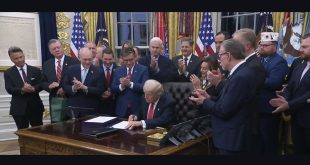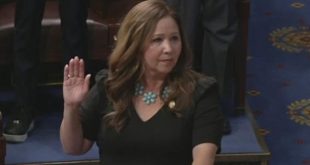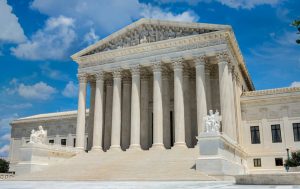On June 27, 2025, the U.S. Supreme Court issued a pivotal 6–3 ruling that narrows the power of lower courts to issue nationwide injunctions, a decision with far-reaching implications for federal authority and immigration policy. The ruling, while not addressing the constitutionality of President Trump’s executive order on birthright citizenship, allows parts of the order to take effect in regions not covered by ongoing legal blocks.
The majority opinion, written by Justice Amy Coney Barrett, concluded that lower courts exceeded their authority by issuing universal injunctions that apply across all states, even in cases brought by a small number of plaintiffs. The Court emphasized that federal judges must tailor their decisions to the actual parties involved in a case and refrain from issuing sweeping orders that halt policies nationwide. This ruling significantly reshapes how legal challenges to federal policies can be enforced moving forward.
Although the Court did not determine whether President Trump’s Executive Order 14160, which aims to deny birthright citizenship to certain children born in the U.S., violates the Constitution, it did state that the previous broad injunction halting the policy was overly expansive. The ruling provides a 30-day window before the order can be enforced, giving plaintiffs time to seek class-action status or more targeted legal relief.
Supporters of the executive order argue that the decision restores balance between the judiciary and executive branches. They see it as a necessary check against lower court judges who, they claim, have used nationwide injunctions to obstruct presidential authority and national policy implementation. The Trump administration and its allies heralded the ruling as a win for executive power.
However, the Court’s liberal justices voiced strong opposition. In a sharp dissent, Justice Sonia Sotomayor criticized the majority for, in her view, jeopardizing constitutional protections. She warned that by restricting courts’ ability to fully block unconstitutional actions, the ruling could enable widespread harm before policies are effectively challenged. “When the government acts unlawfully, the courts must be able to stop it—not just for a few, but for all,” Sotomayor wrote.
California Attorney General Rob Bonta swiftly condemned the ruling, calling it “a dangerous precedent that threatens the rights of countless Americans and weakens the judiciary’s ability to serve as a check on executive overreach.” In a public statement, Bonta reaffirmed California’s commitment to protecting birthright citizenship, warning that “piecemeal enforcement of a policy this extreme endangers vulnerable children and undermines constitutional norms that have stood for generations.” He vowed to continue fighting in the courts to ensure that every child born on U.S. soil is treated equally under the law.
The decision also puts a spotlight on the ongoing uncertainty surrounding the future of birthright citizenship. Under the 14th Amendment, anyone born on U.S. soil is generally granted citizenship, a precedent upheld for more than a century. President Trump’s order attempts to challenge that interpretation by targeting children born to undocumented immigrants. Critics argue this is a direct assault on constitutional guarantees and could have profound implications for millions of American families.
From a practical standpoint, the decision means Trump’s executive order could go into effect in areas where injunctions no longer apply, unless additional legal protections are secured. Plaintiffs are now expected to pursue class-action lawsuits in order to ensure broader protections. Meanwhile, lower courts must revisit current blocks on the order and decide whether more limited relief is sufficient.
The Supreme Court’s decision underscores a broader ideological divide not only within the judiciary but across the nation. While conservatives view the ruling as a correction of judicial overreach, progressives fear it marks a dangerous erosion of safeguards for vulnerable populations. For now, the issue remains unresolved, with future litigation likely to revisit the constitutional core of birthright citizenship.
As the 30-day pause begins, civil rights organizations, immigration advocates, and state attorneys general are mobilizing to defend the rights of those potentially impacted. What happens next will likely shape legal battles—and political discourse—leading into the 2026 elections. The Supreme Court may not have ruled on the core constitutional question, but its decision has already changed the legal and political landscape in which that debate will unfold.



